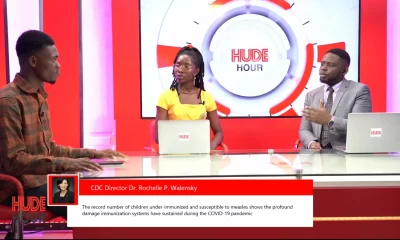News
The Truth Behind Mark Zuckerberg’s Apology and New York Mayor’s Public Health Declaration

It is undeniable that social media has become an indispensable part of our daily lives. From connecting with friends and family to sharing our daily activities, social media platforms such as Facebook, Twitter, TikTok, Snapchat, Instagram amongst many others have revolutionized the way we communicate and interact with each other. However, with the recent events surrounding Mark Zuckerberg’s apology and the Mayor of New York’s statement declaring social media a public health issue, it is becoming increasingly clear that social media is not always a positive influence on our lives, especially when it comes to children and teenagers.
The use of social media among children and teenagers has been a topic of concern among parents and experts for some time now. Many studies have shown that excessive use of social media can hurt mental health, including increased anxiety, depression, and social isolation. The recent events surrounding Mark Zuckerberg’s apology and the Mayor of New York’s statement have only served to highlight these concerns.
One of the main issues with social media is the monetization of children’s privacy. Social media platforms collect vast amounts of data from their users, including children and teenagers, and use this data to target them with ads. This can lead to children being exposed to inappropriate content and can also put their personal information at risk.
How about the impact social media can have on children’s self-esteem?
Social media platforms often present an idealized reality, with users sharing only the best parts of their lives. This can lead to children and teenagers feeling inadequate or left out, which can hurt their mental health.
Despite these concerns, it is important to remember that social media is not inherently bad. It can be a useful tool for connecting with others and can provide a sense of community for those who may feel isolated. However, it is important to use social media in moderation and to be aware of its potential negative effects.
This is where Parents come in, to ensure that their children use social media safely and responsibly. This includes setting limits on screen time, monitoring their children’s online activity, and educating them about the potential risks of social media.
I wonder if the parents who waved placards at Mark Zuckerberg played their role because in as much as the negative effects of social media are adverse, we can’t do away with the fact that it has come stay.
In conclusion, while social media can be a valuable tool for connecting with others, it is important to be aware of its potential negative effects, especially when it comes to children and teenagers. The recent events surrounding Mark Zuckerberg’s apology and the Mayor of New York’s statement declaring social media a public health issue serve as a reminder that we must use social media responsibly and take steps to protect ourselves and our children from its potential harm.













